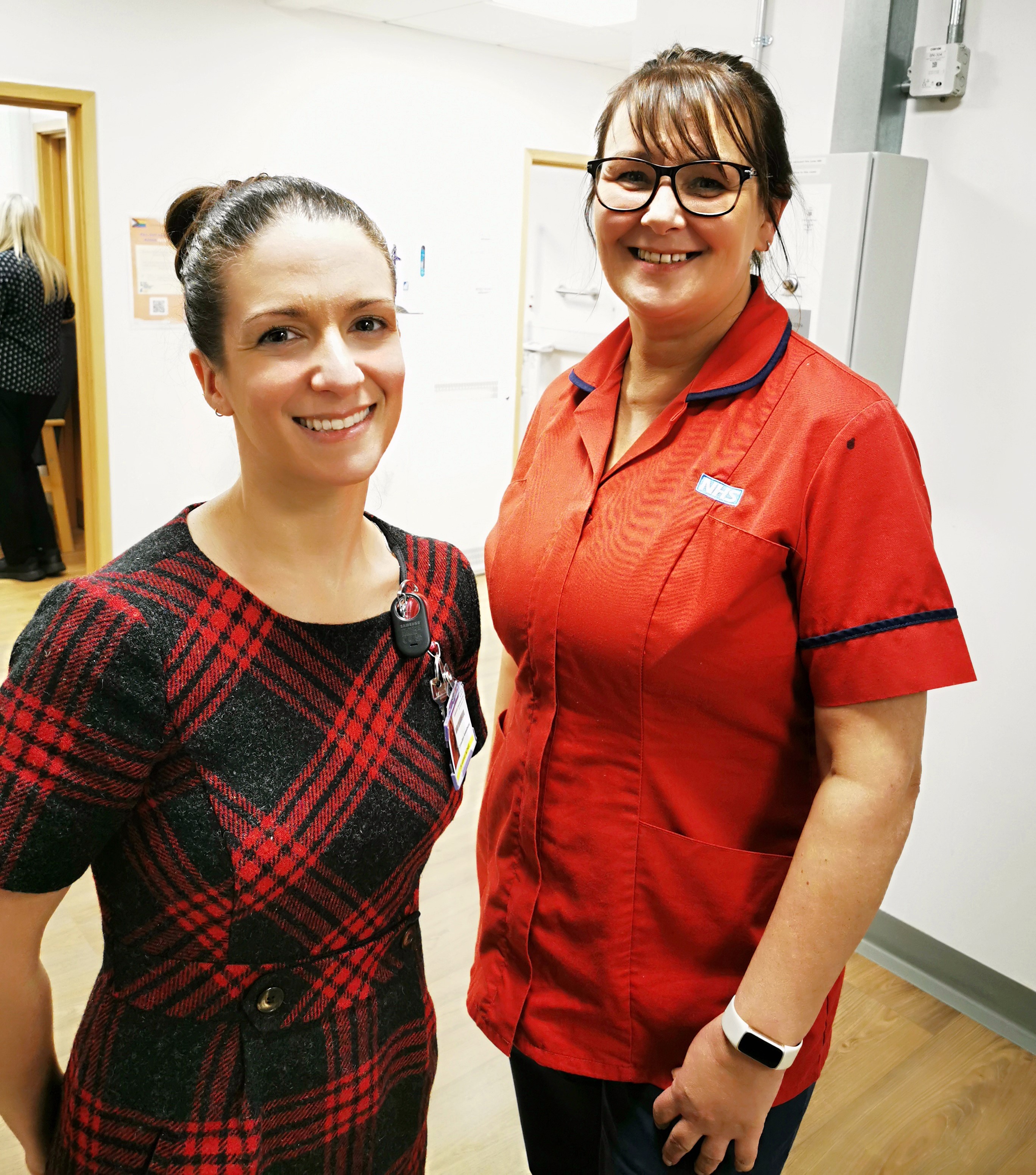Patients' pre-op checks now paperless 
Patients who require surgery under local or general anaesthetic have always needed to complete a health questionnaire prior to the procedure, to help spot any complications that might arise beforehand. And historically, these always meant a trip to hospital to meet with a member of the preoperative assessment team.
But now patients can complete these important checks securely online at a time that's convenient to them, meaning there's no need to attend hospital for this service. These checks can highlight any relevant medical history a patient may have, any conditions that may need to be addressed before surgery, the most appropriate type of anaesthetic and even the way the surgery is performed.
The benefits are expected to be significant, said Dr Hannah McPhee, consultant anaesthetist and University Hospitals Dorset's clinical lead for preoperative assessment and the MyPreOp digital service.
"Pre-op assessments are completed for every patient who is going to have a procedure under anaesthesia at UHD. They are a vital part of ensuring our patients are as safe as possible before, during and after their surgery," Hannah explains.
"They identify reasons why a patient may need particular care at the time of their operation, for example because of their medical history, whether they are likely to experience complications from anaesthesia and surgery, and allow us to put individualised plans in place to make surgery as safe as possible."
The service is suitable for most patients, but there are some who may not like the idea of completing the questionnaire electronically, are unable to, or for whom it's important to meet an expert clinician before surgery. For these patients, face-to-face appointments are still available, and everyone has access to skilled preoperative assessment nurses by phone should they need it.
"Some patients do need extra support, so focusing our expertise on those patients should ensure that all patients can be ready to have their operation as soon as possible," said Hannah.
"Because patients can complete the assessment as soon as the decision is made for a procedure, rather than waiting for a hospital appointment, we are able to identify more complex patients as early as possible, allowing us time to do necessary tests and planning, without delaying surgery, and speeding up the process for those who are more straightforward, too."
"The convenience of doing the assessment at home cannot be overstated - for many patients, an operation may already mean taking time off work afterwards, for example. Taking away the need for an extra hospital visit in the run up to the procedure will be welcomed by many."
And making the assessment more convenient to complete should mean more patients' care receive the preoperative care they need when they need it.
"Each year at least 400 pre-operative assessment appointments simply don't go ahead because the patient hasn't told us in advance they are unable to make it, allowing us to schedule another patient," continued Hannah. "This can be for a range of reasons, but we know from speaking to patients that inconvenience is among the most common - so we hope that making it possible to complete the screening questionnaire remotely will encourage more to be successfully completed when planned."
MyPreOp went live in late January, and Hannah says feedback from patients who have already used it has been "positive."









